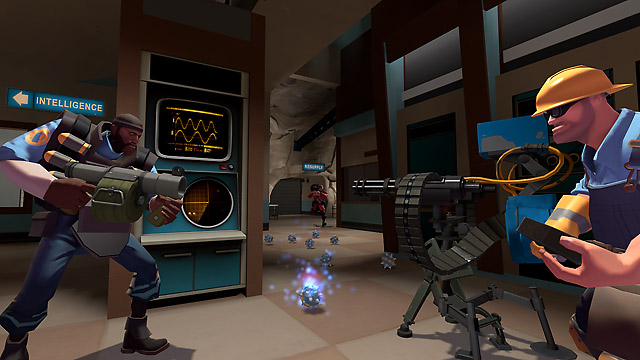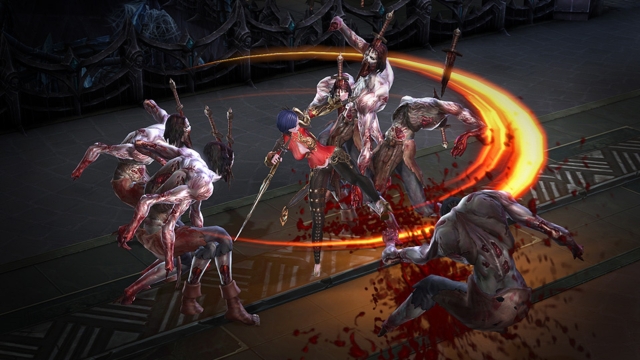The hardest thing to do with a guild is get it started and running properly, get people interested, get everyone on board and having fun. The second hardest thing to do is get rid of it.
Why would you want to? Lots of possible reasons. Maybe you’ve found that running this guild is an avalanche of stress that you don’t need in your life. Maybe you’re not having fun with the game any longer and want to move on to something else. Maybe you have other life goals that you need to pursue at the moment, like your lifelong dream of becoming a chess-boxing champion. Heck, maybe the guild is just evolving in a direction that everyone else likes but you really do not. There are lots of perfectly valid reasons to say that you don’t want to be in charge any more.
But there is a problem, and that problem is that you have a position of leadership because you did something. There was a function you provided for the guild that the guild does not have otherwise. So you’re going to need to do more than just throw your stuff out the door, wave goodbye, and start your new life as an ex-leader. And since you can read headlines, you know this column is going to be all about getting rid of that leadership.

Determine your new status first
Before you start down the road somewhere in the general direction of away, it’s important to establish what your new role is going to be. There are three basic options, although one depends a bit on circumstances – you could be leaving outright, you could be retiring, or you could be starting something different.
Leaving covers leaving both the guild itself or the game as a whole. It means that you’re not going to be around any longer on any sort of reliable basis – at best, you might pop in from time to time. Anything that needs to be sorted out with you needs to happen before you go, because you aren’t going to want to deal with it afterwards.
Retiring means that you’re still staying in the guild, but you’re abdicating any responsibilities and going back down to being a member. This is good if you still want to be in the game and play with the same group of people but can’t handle the responsibility, but it also is useful if you know you’re just not going to be around on a regular basis any longer. It’s acknowledging the reality that you can no longer be a leader without waving goodbye.
Starting something different is a bit of a different situation, and sometimes that means that you’re less “leaving politely” and more “jumping off while the jumping is good.” There are times when it is entirely acceptable to go in with the intent of just taking what’s worth taking and leaving the rest behind, although they’re rare situations. Regardless, for this column, we’ll assume that if you’re starting something different, you bear no ill will to the people remaining behind – you’re just migrating from a competitive League of Legends team to a more fun-based one, for example.

Talk with the other leaders
If your guild is too small to have more than one officer (you), you don’t have other leaders to speak with. But if it involves at least a couple of other people in charge, before you move forward, you should talk with your fellows and explain what’s going on and what you want to do. And if they react badly now, well, you know what the rest of the procedure will be like.
Part of the reason for this is simple courteousness, but the more salient point is the fact that you will need to figure out a transfer of power in the easiest possible fashion. As mentioned before, there are certain functions which you perform in your guild, otherwise, you wouldn’t be in a leadership position. You’ll need to figure out who is going to take over those functions and what the new structure of the guild will be, preferably before someone has to take them on due to your absence.
There’s also the discussion of having someone new rise into the officer corps – and it need not be an automatic discussion. If the transition is a slow one, you can even try a few people out as officers beforehand (although you should probably move on to the next step before doing so) or restructure your guild to not need the separate officer that you previously serve as. If you were the only person super-interested in something and you’re not going to be leading the guild in any fashion, it’s possibly best to not replace you and just let that position lie fallow.

Talk with the members
Once you have something in place to serve for a transfer of power, it’s time to speak with the guild members. Explain to them that mommy and daddy still love them very much, but their relationship just isn’t –
Whoops, sorry, wrong context. But it is important to let the guild know what’s going on along with some sort of timetable. This serves several purposes beyond just giving people a chance to get used to the new status quo – it allows people to bring up issues that the officers as a group may not have considered.
I mentioned above that it’s possible to wind up in a position where you’re starting something new, for instance. If you’re moving from one style of guild to another – from progression to more casual shared play in World of Warcraft, for example – you may find that there are other people who want to follow your lead. Rather than asking them to surreptitiously sneak out the back, so to speak, it makes more sense to establish from the first that you will be leaving, and players X, Y, and Z will be going with you. In extreme cases, you might even find out that the majority of the guild would rather be joining you in your new project, at which point it’s time to step back and re-evaluate the guild structure as a whole rather than just moving along.
Even if you’re leaving or stepping down entirely, though, there’s stuff to be considered. Members will want to know why an officer is here one day and not the next. By making the process transparent, you keep an open line of communication while simultaneously offering players the options to suggest any leadership or structural changes that really need to happen along the way.
The biggest danger with leaving is that you’re providing some sort of vital service that the existing officers don’t – and a service that you may not be aware of until it’s pointed out. Maybe you’re the only reason two members get along as well as they do. That doesn’t mean you can’t leave, but it does mean you need to consider and address the issues before they come up rather than after.
Ultimately, it’s not impossible to step away from leadership, but it involves a fair chunk of talking about what’s going on and deciphering your plans ahead of time. If you’re particularly worn out from leading your fellow players, it can feel like one last burden that you just want to shed as quickly as possible, but when you handle it well you’ll be leaving behind a group that can operate without you and may be a home again at some point in the future.







Published: Mar 3, 2016 08:56 am